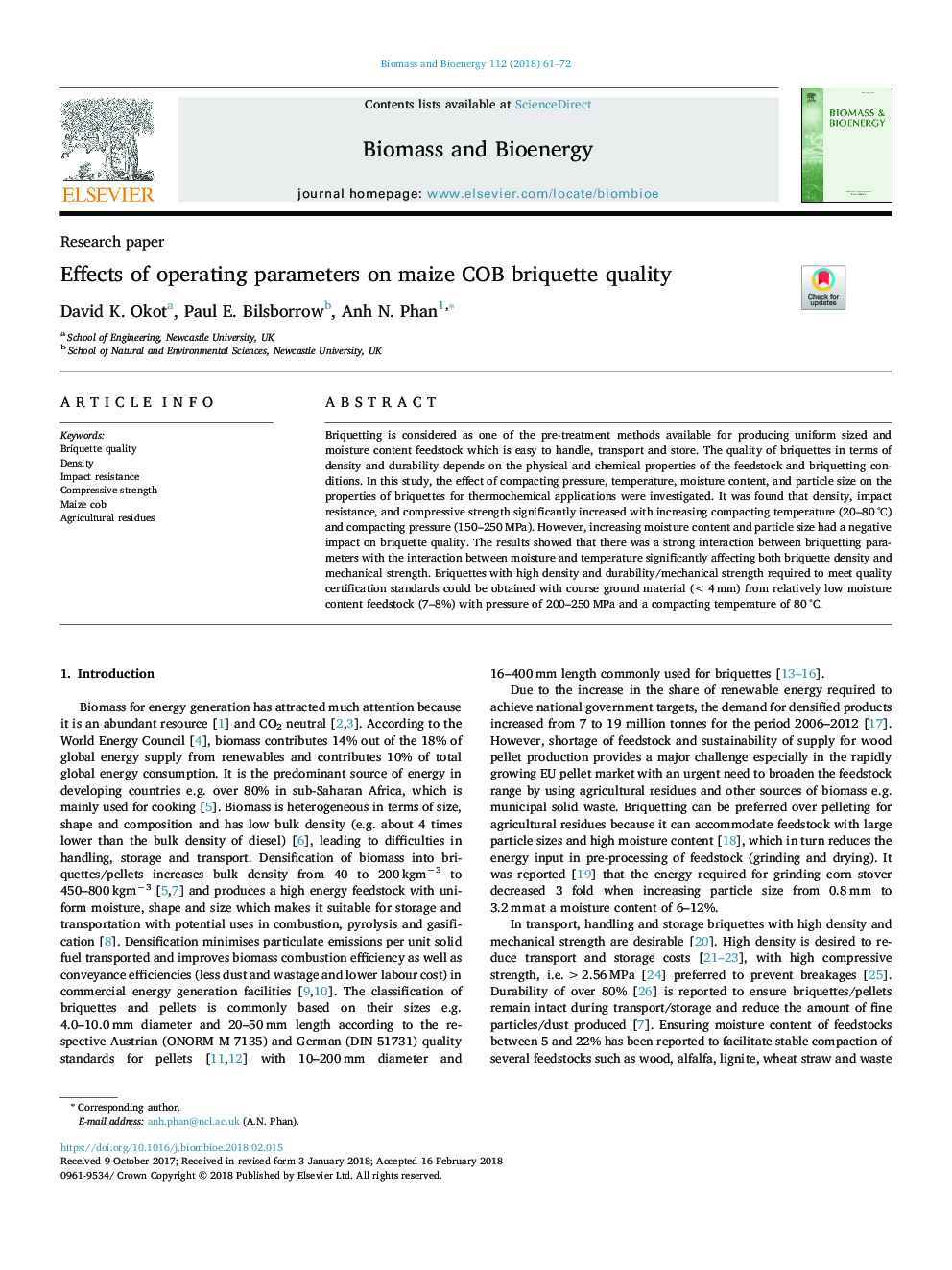| Article ID | Journal | Published Year | Pages | File Type |
|---|---|---|---|---|
| 7062913 | Biomass and Bioenergy | 2018 | 12 Pages |
Abstract
Briquetting is considered as one of the pre-treatment methods available for producing uniform sized and moisture content feedstock which is easy to handle, transport and store. The quality of briquettes in terms of density and durability depends on the physical and chemical properties of the feedstock and briquetting conditions. In this study, the effect of compacting pressure, temperature, moisture content, and particle size on the properties of briquettes for thermochemical applications were investigated. It was found that density, impact resistance, and compressive strength significantly increased with increasing compacting temperature (20-80â¯Â°C) and compacting pressure (150-250â¯MPa). However, increasing moisture content and particle size had a negative impact on briquette quality. The results showed that there was a strong interaction between briquetting parameters with the interaction between moisture and temperature significantly affecting both briquette density and mechanical strength. Briquettes with high density and durability/mechanical strength required to meet quality certification standards could be obtained with course ground material (<4â¯mm) from relatively low moisture content feedstock (7-8%) with pressure of 200-250â¯MPa and a compacting temperature of 80â¯Â°C.
Related Topics
Physical Sciences and Engineering
Chemical Engineering
Process Chemistry and Technology
Authors
David K. Okot, Paul E. Bilsborrow, Anh N. Phan,
